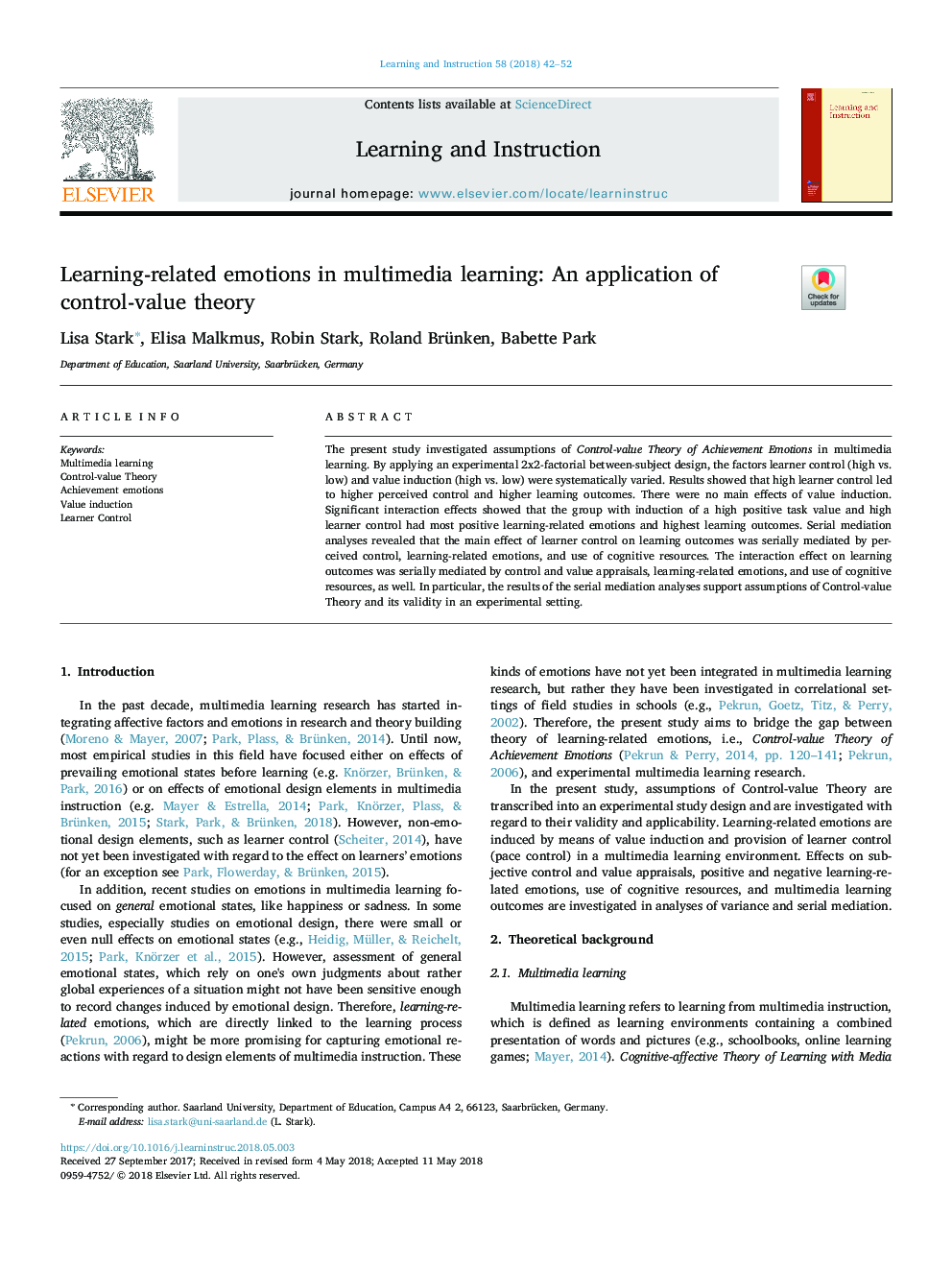| Article ID | Journal | Published Year | Pages | File Type |
|---|---|---|---|---|
| 6845367 | Learning and Instruction | 2018 | 11 Pages |
Abstract
The present study investigated assumptions of Control-value Theory of Achievement Emotions in multimedia learning. By applying an experimental 2x2-factorial between-subject design, the factors learner control (high vs. low) and value induction (high vs. low) were systematically varied. Results showed that high learner control led to higher perceived control and higher learning outcomes. There were no main effects of value induction. Significant interaction effects showed that the group with induction of a high positive task value and high learner control had most positive learning-related emotions and highest learning outcomes. Serial mediation analyses revealed that the main effect of learner control on learning outcomes was serially mediated by perceived control, learning-related emotions, and use of cognitive resources. The interaction effect on learning outcomes was serially mediated by control and value appraisals, learning-related emotions, and use of cognitive resources, as well. In particular, the results of the serial mediation analyses support assumptions of Control-value Theory and its validity in an experimental setting.
Related Topics
Social Sciences and Humanities
Psychology
Developmental and Educational Psychology
Authors
Lisa Stark, Elisa Malkmus, Robin Stark, Roland Brünken, Babette Park,
